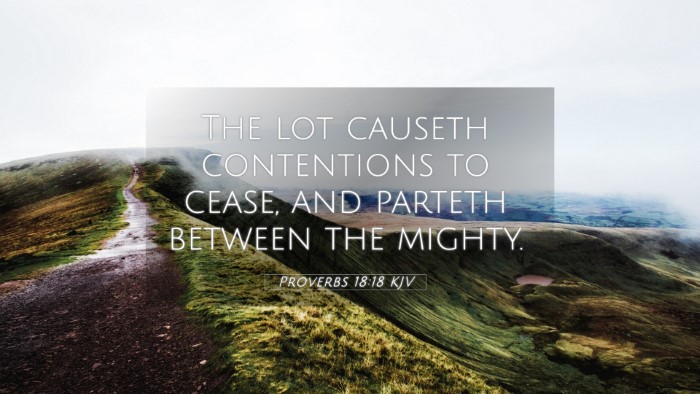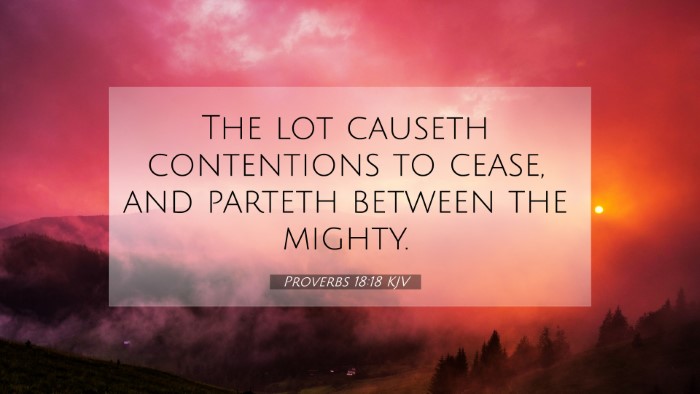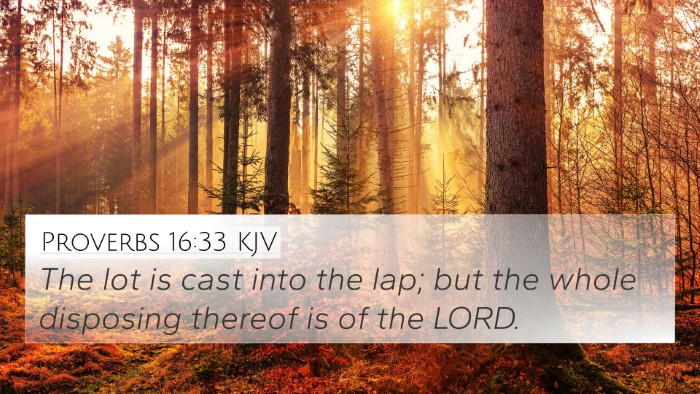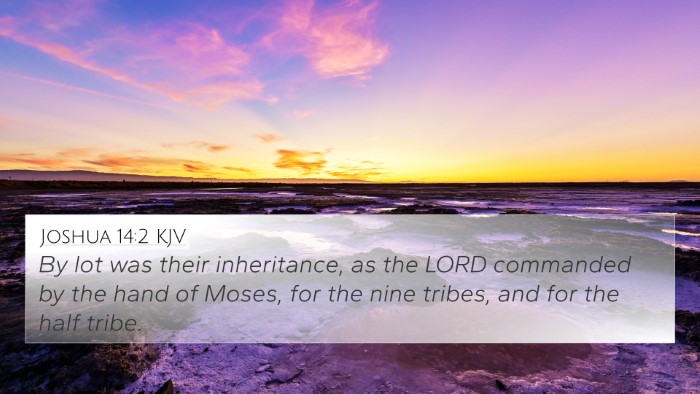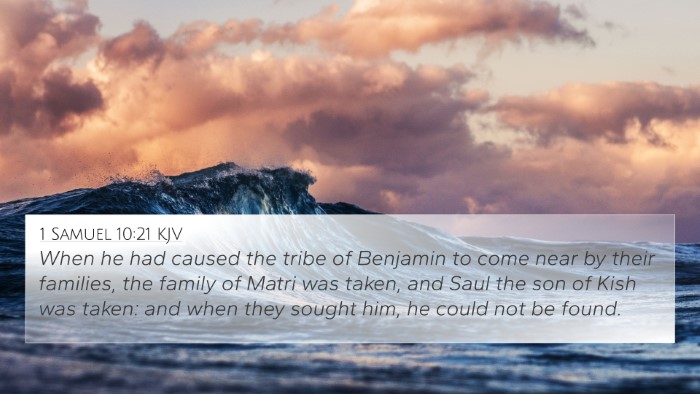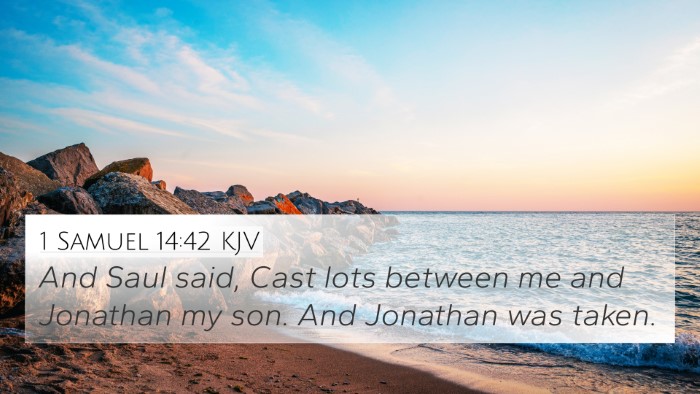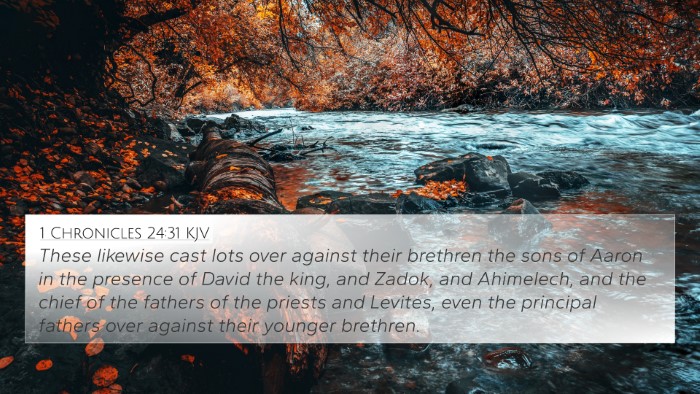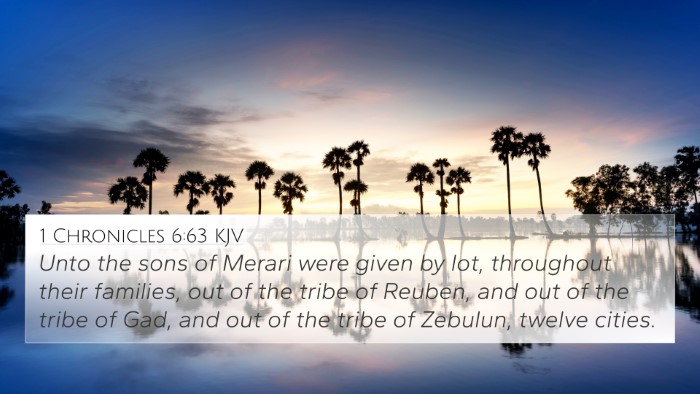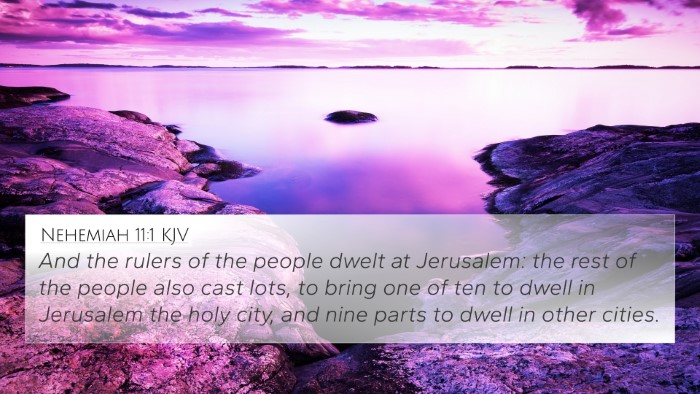Understanding Proverbs 18:18
Proverbs 18:18: "The lot causeth contentions to cease, and parteth between the mighty."
Overview
In this verse, we explore the wisdom of Proverbs 18:18, which addresses the resolution of disputes through an impartial method: casting lots. This practice, often seen in biblical narratives, highlights the value of divine guidance in decision-making.
Commentary Insights
-
Matthew Henry:
Henry emphasizes the role of providence in the outcomes of decisions made through the casting of lots. He notes that this method creates a clear division among parties and settles disputes that might otherwise escalate into contention. It serves both to remove strife and to uphold fairness, suggesting that whatever the outcome, it aligns with God’s sovereignty.
-
Albert Barnes:
Barnes explains that the "lot" represents a tool for establishing equitable solutions, particularly when human wisdom cannot resolve matters. He underscores that the phrase "parteth between the mighty" indicates that even powerful individuals cannot override the outcomes determined by the lot, portraying divine will as supreme over human authority.
-
Adam Clarke:
Clarke comments on how this verse reflects an essential principle of justice and fairness among people. He interprets the casting of lots as a means to prevent favoritism and mitigate disputes, indicating a reliance on God as the ultimate judge in human affairs. The separation of the mighty also reinforces the idea that worldly power cannot dictate outcomes when it comes to God's plans.
Bible Verse Cross-References
Examining cross-references enriches the understanding of Proverbs 18:18. Below are notable verses that relate thematically and contextually:
- Acts 1:26: The apostles used casting lots to choose Matthias, emphasizing God’s role in selection.
- Proverbs 16:33: "The lot is cast into the lap; but the whole disposing thereof is of the Lord," confirming divine sovereignty in decision-making.
- 1 Samuel 14:41-42: Saul sought God’s guidance through means of casting lots, highlighting reliance on divine intervention.
- Joshua 14:2: The division of land among tribes was determined by casting lots, underscoring fairness in distribution.
- Leviticus 16:8: The practice of casting lots was part of the Day of Atonement, establishing sacred procedures in spiritual matters.
- Proverbs 15:18: "A wrathful man stirreth up strife: but he that is slow to anger appeaseth strife," emphasizing the contrast of resolving conflict through different means.
- Matthew 27:35: Soldiers cast lots for Jesus' garments, illustrating the fulfillment of prophecy and the ultimate control of God's plan even in the face of injustice.
- Proverbs 20:24: "Man's goings are of the Lord; how can a man then understand his own way?" This broadens the idea of divine guidance in human decisions.
- Isaiah 66:4: Those who follow their own ways will face consequences, reinforcing the need for aligning with God's will.
- 2 Chronicles 18:18-22: The role of prophets and God’s guidance in knowing the truth among conflict, reminiscent of how lots were used to discern God's will.
Thematic Connections
This verse fits into a larger narrative about fairness, divine will, and the resolution of human conflict:
- Divine Sovereignty: Foundational in both the Old and New Testament as seen in Acts and Proverbs, denoting God’s ultimate control.
- Justice and Fairness: The applications of lots symbolize unbiased judgment amidst human biases, echoed in verses like Proverbs 16:33.
- Resolution of Disputes: Cross-references illustrate various methods God uses to establish peace among individuals.
- Power Dynamics: Relating to authority, highlighting that divine authority supersedes earthly power as conveyed in Proverbs 18:18.
Conclusion
Proverbs 18:18 provides profound insight into human relationships and divine guidance. By understanding and cross-referencing this verse with others, we embrace the thematic connections woven throughout Scripture, discovering deeper theological truths about God's sovereignty, justice, and the peace He offers amidst conflict. Whether you are a student of the Bible or involved in sermon preparation, employing tools for Bible cross-referencing can effectively enrich your understanding of God’s Word.

